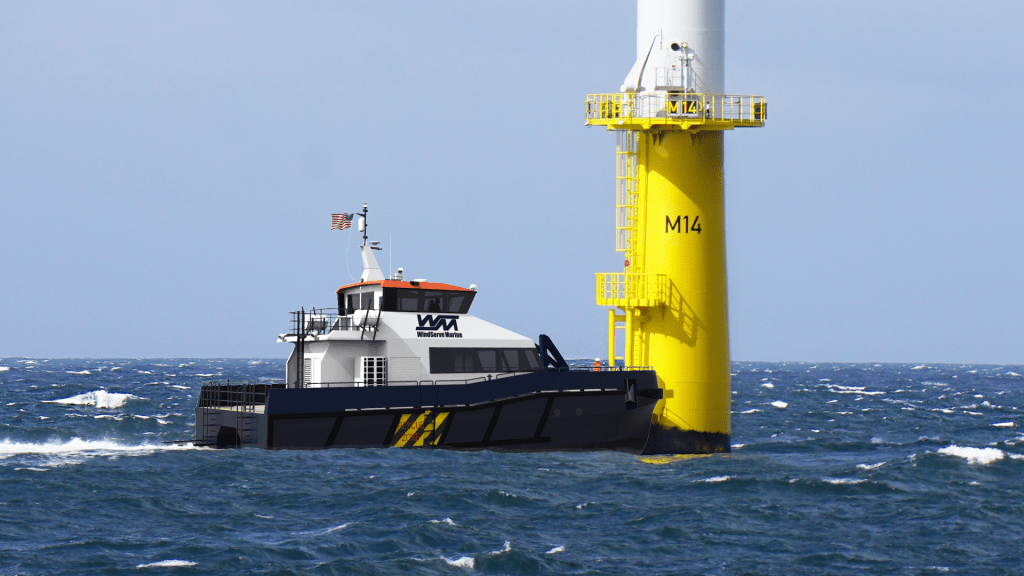Foreign-flagged vessels working in U.S. offshore energy development of wind power, gas and oil could face further restrictions under a bill introduced in Congress last week.
The bill calls for foreign-flagged vessels to operate under the same rules as U.S. vessels and to limit the number of foreign nationals they hire to work in U.S. offshore activities.
Supporters say the legislation, introduced by Reps. Garret Graves, R-La., and John Garamendi, D-Calif. in the House and Sen. Bill Cassidy, R-La.. in the Senate, would “level the playing field” by tightening U.S. oversight of foreign vessels and their crews and making sure that U.S. mariners aren’t priced out of the labor market by lower paid foreign seafarers.
They say the American Offshore Workers Fairness Act would close a loophole in current law dating to 1978 that allows foreign-registered vessels and structures to employ nationals of any country while working in U.S. waters, provided they can show that the structure or vessel is more than 50% foreign-owned or controlled.
Without an exemption, U.S. citizens or lawful permanent residents must be employed. There is also an exception allowing non-U.S. citizens be employed if it can be proven that there aren’t enough U.S. mariners qualified and available to do the job. This would not be changed by the legislation.
“U.S. and Louisiana mariners and maritime companies lose when foreign vessels, which do not pay U.S. taxes, business taxes or payroll taxes, take advantage of loopholes to hire foreign workers for half the cost,” Sen. Cassidy said in a statement. “This bill takes us a step closer to bringing parity to the market.”
The proposal would limit mariners working in the offshore sector to U.S. citizens, permanent residents or citizens of the nation of the vessel’s registry. “This would be a sharp departure from prior offshore manning requirements,” Charlie Papavizas, maritime attorney with Washington, D.C.-based Winston & Shawn wrote on his company’s website.
The legislation is supported by the Shipbuilders Council of America and the Offshore Marine Service Association, which represents vessels that operate in the U.S. offshore energy sector.
“On a level playing field, U.S. vessels and U.S. merchant mariners can compete with anyone on the planet,” said OMSA President Aaron Smith. “However, we cannot complete with mariners making far less than what any U.S. citizen would or should accept.”
Smith cited as an example a Norwegian-flagged vessel that operates in U.S. waters that is manned by Russian, Ukrainian, Filipino and Chinese workers as well as those from other countries, but not by U.S. or Norwegian citizens. “By exploiting this loophole, foreign operations realize significant cost savings compared to U.S. vessels which are required by law to be crewed by U.S. mariners.”
Under current law, all vessels, rigs, platforms or other offshore structures are required to be manned by U.S. citizens or lawful permanent residents. The law offers an exemption from hiring U.S. citizens or lawful permanent residents for offshore work and allows vessels that are more than 50% foreign-owned to operate in U.S. waters with foreign crews. The exemption was included to eliminate potential retaliation by foreign nations against U.S. workers in foreign offshore activities.
In practice, supporters of the bill say, the exemption has not provided reciprocal access to foreign waters for U.S. mariners but instead has created a loophole that allows foreign vessels from some of the wealthiest countries to use mariners not from their home or flag nation but from low-wage countries, paying them 14-70% less than U.S. mariners earn. Since foreign mariners aren’t subject to U.S. tax and labor law, foreign vessel owners often leverage the cost savings to undercut the charter rates of similar U.S. vessels, according to a statement from Cassidy’s office.
If the bill becomes law, the legislation would make the following changes:
- Require mariners on foreign-flagged vessels to be either U.S. citizens or citizens of the nation where the vessel is flagged.
- Limit the number of visas that could be issued to crew each foreign vessel and make sure these visas are connected to a mariner’s work on that vessel.
- Require foreign vessels to annually prove their ownership.
- Require U.S. Coast Guard inspections of these vessels annually to ensure compliance with this law.
- Require that foreign crew members secure TWIC cards from the U.S. Department of Homeland Security, as is required of U.S. mariners.




